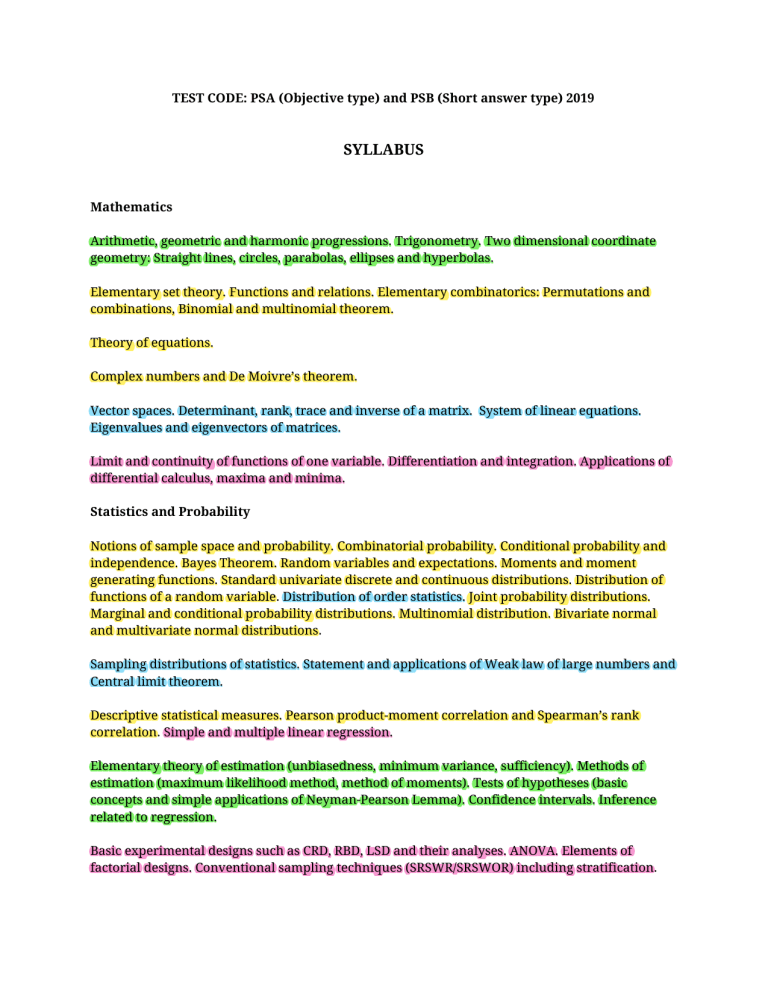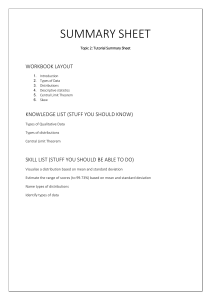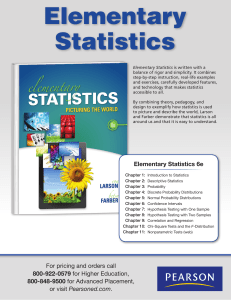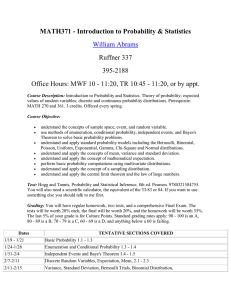
TEST CODE: PSA (Objective type) and PSB (Short answer type) 2019 SYLLABUS Mathematics Arithmetic, geometric and harmonic progressions. Trigonometry. Two dimensional coordinate geometry: Straight lines, circles, parabolas, ellipses and hyperbolas. Elementary set theory. Functions and relations. Elementary combinatorics: Permutations and combinations, Binomial and multinomial theorem. Theory of equations. Complex numbers and De Moivre’s theorem. Vector spaces. Determinant, rank, trace and inverse of a matrix. System of linear equations. Eigenvalues and eigenvectors of matrices. Limit and continuity of functions of one variable. Differentiation and integration. Applications of differential calculus, maxima and minima. Statistics and Probability Notions of sample space and probability. Combinatorial probability. Conditional probability and independence. Bayes Theorem. Random variables and expectations. Moments and moment generating functions. Standard univariate discrete and continuous distributions. Distribution of functions of a random variable. Distribution of order statistics. Joint probability distributions. Marginal and conditional probability distributions. Multinomial distribution. Bivariate normal and multivariate normal distributions. Sampling distributions of statistics. Statement and applications of Weak law of large numbers and Central limit theorem. Descriptive statistical measures. Pearson product-moment correlation and Spearman’s rank correlation. Simple and multiple linear regression. Elementary theory of estimation (unbiasedness, minimum variance, sufficiency). Methods of estimation (maximum likelihood method, method of moments). Tests of hypotheses (basic concepts and simple applications of Neyman-Pearson Lemma). Confidence intervals. Inference related to regression. Basic experimental designs such as CRD, RBD, LSD and their analyses. ANOVA. Elements of factorial designs. Conventional sampling techniques (SRSWR/SRSWOR) including stratification.





